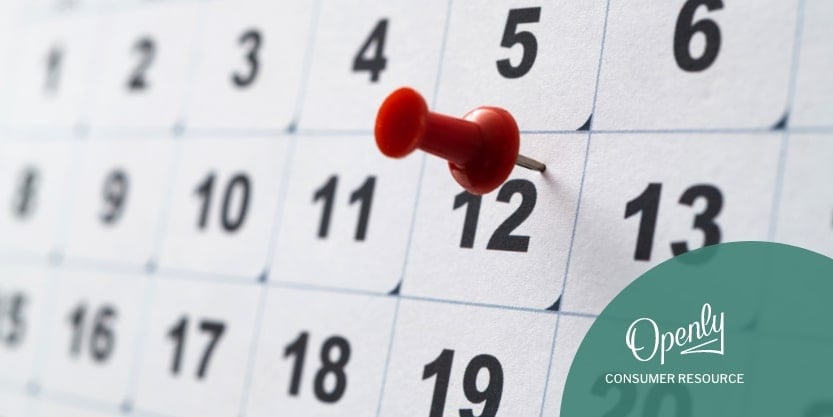Homeowners insurance is your safety net, protecting your cherished home and valued possessions. And if you are a new homeowner, you may be wondering as the end of your policy term draws near, “does homeowners insurance automatically renew?" The short answer is: maybe, homeowners insurance typically renews automatically; but that doesn’t mean you should disregard the renewal period and process.
In this article, we'll walk through the renewal process, explain the importance of reviewing your policy, and explore options that may ensure your policy better aligns with your evolving needs.
At a glance:
- Homeowners insurance may renew automatically, but your active involvement is necessary for policy alignment with evolving needs.
- Enlist the help of an independent insurance agent who can be your trusted guide and keep you from becoming underinsured.
- Strive for affordable premiums and deductibles that won't strain your budget.
The homeowners insurance renewal process
To make the homeowners insurance renewal process easier, we’ve outlined the steps you should take once you receive the policy renewal offer:
- Review the policy renewal to determine whether or not the current coverage levels and deductible continue to meet your needs.
- Communicate any changes or concerns you may have to your insurance agent. (This is also a great time to consider other coverage types, such as flood insurance, if you identify any gaps in your policy coverage.)
- If you decide to make changes to your policy, you can expect to receive a revised offer reflecting any changes you made.
What to review during the renewal process
Typically, an insurance renewal offer provides coverage for the same dwelling with the same amount of personal property and liability limits as the current policy. But many homeowners have life—or property—changes that should be accounted for during the renewal period to avoid becoming underinsured.
For instance, say you recently married and purchased a diamond ring, or you replaced the roof of your dwelling and / or conducted other home renovations (such as upgrading electrical systems or replacing pipes); we recommend connecting with your independent agent to discuss what sort of changes or upgrades they would suggest for your policy and specific circumstances.
To stay on top of your coverage and general insurance policy needs, we’ve identified a few areas to consider during the renewal process, including rates, coverages, deductibles, and general policy information.
Homeowners insurance rates
Inflation, rising construction costs, and adjustments to your property's risk assessment can all impact your home insurance premiums.
If you see a substantial hike to your premium, it may be worth discussing the increase with your current insurer or independent agent, or exploring alternative insurance providers. However, it’s important to manage your expectations; all insurance carriers are impacted by inflation, rising construction costs and evolving claims and as such, you may not find significant savings when considering switching to a new provider.
To learn more about insurance rates, check out our blog Why Is My Homeowners Insurance So High?
Coverages
Your home insurance safeguards your most precious assets from your home to personal belongings to your financial stability. That’s why we recommend dedicating time to evaluate the coverage options provided by your insurer. If after your evaluation you find yourself under-protected and want to make changes to your coverage levels, be aware that additional premiums may apply.
Deductibles
Deductibles are a balancing act. While a higher deductible may lead to lower premiums, it also means you'll have greater out-of-pocket expenses in the event of a claim. If you choose to lower the deductible for your policy, you will see an increase in the amount paid out by your insurance provider in the event of a covered loss, but it will likely also increase your monthly premiums. Assess your financial situation and strategically choose a deductible that aligns with your budget.
Policy information
Details matter. Double-check that all the information in your policy is accurate, including contact details, mortgage information, and other pertinent data. Data accuracy ensures smooth and easy communication with your insurer—and seamless claims processing.
Choosing the best homeowners insurance policy for you
Rates are variable and are increasing year over year for many homeowners, even if you haven't made any claims or changes to your policy.1
Here are just a few examples of reasons for rate increases, including but not limited to:
- Increase in frequency and severity of storm patterns and weather activity
- Rise in the cost of replacing property (inflation and supply chain delays)
- Surge in the number of claims filed during the previous year
While homeowners insurance may often renew automatically, it's essential to be proactive during the renewal process. Review your policy, note any changes, and explore options that may better match your evolving needs. By reviewing the critical elements of your policy and ensuring you have the best homeowners insurance policy you can afford, you'll safeguard your home and possessions with the protection they deserve.
If you would like more information about how homeowners insurance works, check out our blog post on home insurance basics.
* We provide this information to help you understand insurance. Any coverage is subject to the terms of your policy. Please refer to your policy and declaration page for complete coverage details.
1 Adam Hardy. "Here’s How Much Your Home Insurance Will Rise This Year, According to a New Forecast.” Money. Published 10 April 2023. Accessed 19 July 2023. https://money.com/home-insurance-costs-rise-2023-forecast/




